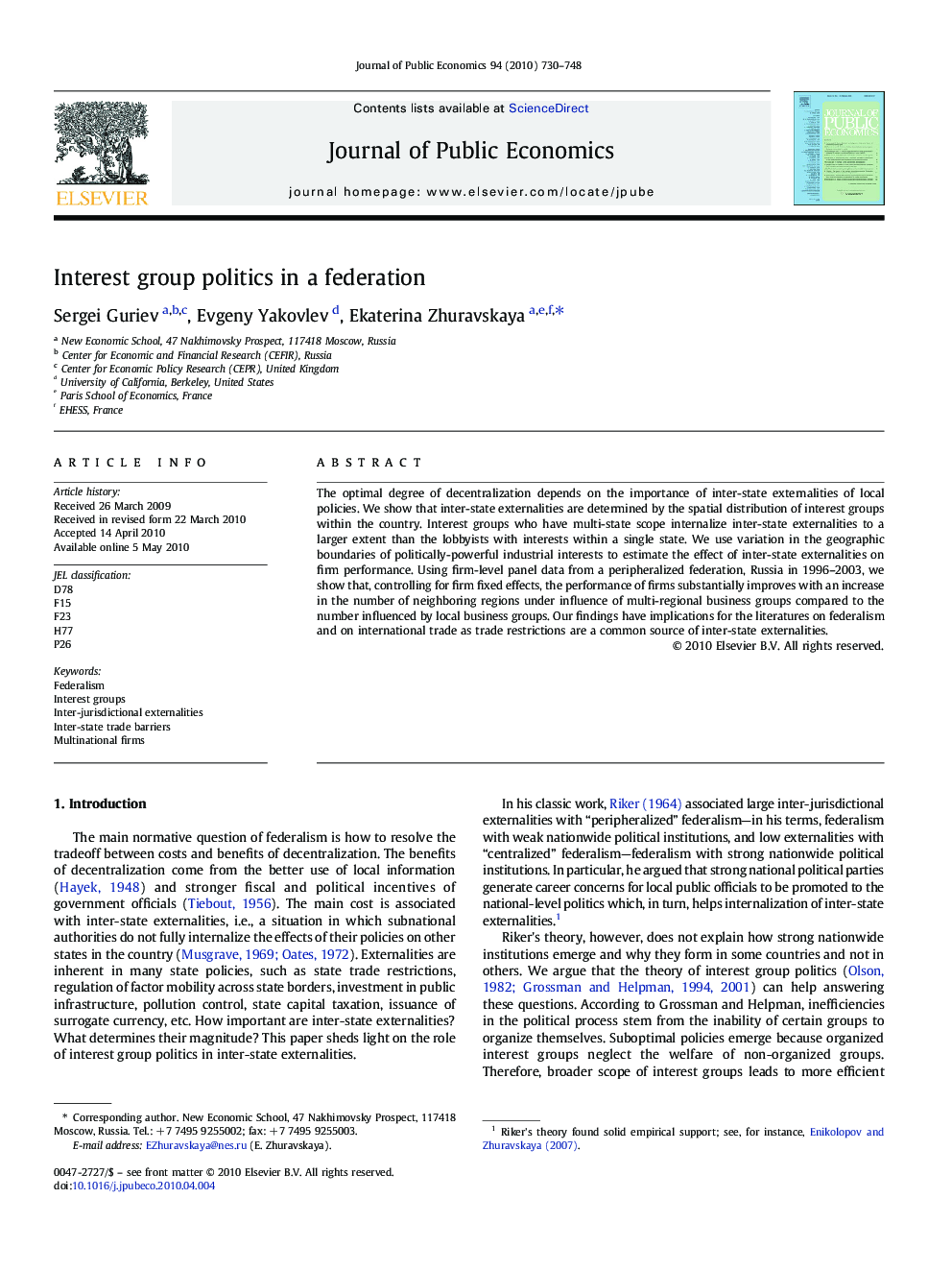| Article ID | Journal | Published Year | Pages | File Type |
|---|---|---|---|---|
| 969413 | Journal of Public Economics | 2010 | 19 Pages |
The optimal degree of decentralization depends on the importance of inter-state externalities of local policies. We show that inter-state externalities are determined by the spatial distribution of interest groups within the country. Interest groups who have multi-state scope internalize inter-state externalities to a larger extent than the lobbyists with interests within a single state. We use variation in the geographic boundaries of politically-powerful industrial interests to estimate the effect of inter-state externalities on firm performance. Using firm-level panel data from a peripheralized federation, Russia in 1996–2003, we show that, controlling for firm fixed effects, the performance of firms substantially improves with an increase in the number of neighboring regions under influence of multi-regional business groups compared to the number influenced by local business groups. Our findings have implications for the literatures on federalism and on international trade as trade restrictions are a common source of inter-state externalities.
